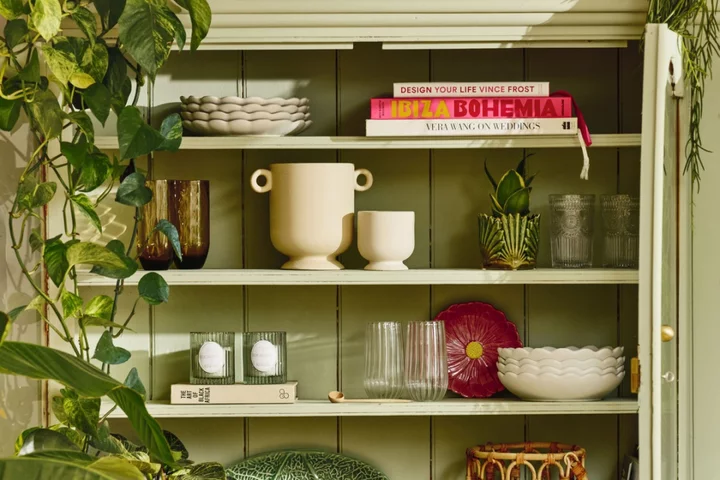Thinking about giving your home a mini makeover?
When it comes to creating your own personal style, there are a few principles which come in super handy when you’re about to embark on a new project… and take your first foray into the world of interior design.
“It’s not rocket science that if you wake up in a home or room you love, which makes you feel happy and calm and brings a smile to your face, then you will start your day with a more positive mindset,” Lucy Gough writes in her new book, The Home Style Handbook.
“And it doesn’t have to cost the earth either. Paint, wallpaper, upcycling, second-hand furniture, along with a new cushion or two, can go a long way in transforming your home,” she suggests.
Currently living in Sydney, Australia, and head stylist at Home Beautiful magazine, Gough says she feels it’s important as a stylist and freelance creative director to be able to turn your hand to any aesthetic a client asks of you.
“Us stylists need to be truly versatile!” enthuses Gough.
Here, she shares her insider tips on how to style your home like it is second nature, which is sure to put you in a positive frame of mind…
Make a mood board
“All wonderful interiors schemes are pulled together in the beginning stages using a mood board,” says Gough.
“Not only are they important in helping pull together all your creative thoughts and ideas,” she continues. “But they are fun to make and a great mindful task for you to play around with at the beginning of the project, to make sure you get it right first time.”
Create continuity of colour
“If you can decide on your colour and texture palette before you embark on picking up a paintbrush, your home will feel cohesive,” notes Gough. “And might trick people into thinking a professional has helped you!”
A thread of colour throughout your home is so important for it to feel like you have considered your ideas before implementing them, she adds.
Tell a story
Not only should you consider your palette but also think about a theme, says Gough.
“Now, I’m not talking about a Disney theme here! I mean a thread forming around your love of antiques, family treasures, a dark palette or coastal look for example.
“Something that makes your heart sing when you walk in your home!”
Then add colours you love and bring these together with surface samples and foliage, she writes in The Home Style Handbook. If you decide to go with two or more bold colours, Gough says to add some soft tones in between to give them space to breathe.
Style your space in sections
“I suggest approaching your room as a series of vignettes,” encourages Gough.
“Sometimes, if you’re not a professional it can be overwhelming to think about styling a whole room at a time. Instead, think of each room as a series of smaller spaces.
“Look through your phone screen and break it down into smaller photographable corners and sections,” advises Gough.
“For example, style the sofa area first then the TV unit area second, and the corner with the armchair and mirror third.”
And when it comes to the finishing touches, such as styling your succulents, she writes: “Notice how the objects and plants on the cabinet (pictured) are higher in the top left and then go down at an angle to the bottom right.”
Visualise a triangle formation
“When I am styling bookshelves, I like to style using a visual triangle formation,” says Gough. “I never style with symmetry – although there is nothing wrong with doing so.”
She continues: “I prefer the more relaxed look and find creating triangular shapes between items helps aesthetically.
“And don’t pack things in too tightly,” says Gough. “You should give things room to breathe!”
The Home Style Handbook by Lucy Gough, published by Mitchell Beazley, priced £30. Photography by Simon Bevan. Available now.
Read MoreCharity boss speaks out over ‘traumatic’ encounter with royal aide
Ukraine war’s heaviest fight rages in east - follow live
One in 10 ‘spending beyond their means’ – try these 7 cutbacks guaranteed to save families money
Grandmother and grandson who had sepsis at same time ‘lucky to be alive’
What is combination cholesterol therapy, as study suggests it could save lives?









